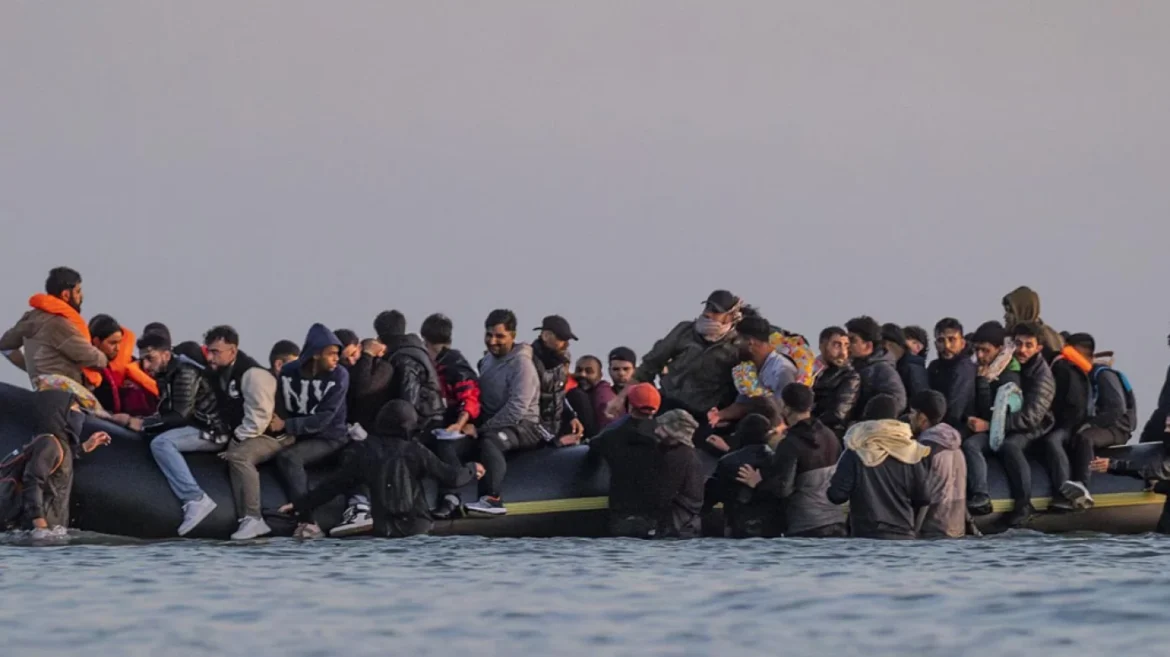The UK-French small boats plan aimed at curtailing dangerous Channel crossings has officially come into pressure. Under the brand new deal, migrants arriving in the UK with the aid of small boats will be detained and returned to France. In addition, France will send the United Kingdom an identical quantity of asylum seekers who’ve not previously attempted the perilous journey and skip essential safety and eligibility assessments.
The agreement, which was added following months of diplomatic negotiations between the United Kingdom and France, is designed to address the increasing range of illegal boat crossings within the English Channel. The scheme has now acquired approval from the European Commission and several EU member states, paving the way for its full implementation.
Table of Contents
ToggleWhat Does the UK-French Small Boats Plan Involve?
The number one objective of the United Kingdom-French small boats plan is to reduce the number of migrants crossing the Channel in unsafe conditions. Under this association, any person migrant trying to enter the UK by boat could be again to France if their asylum application is deemed inadmissible. This return procedure ought to start within the coming weeks.
Although UK law prevents the deportation of asylum seekers to their nations of starting place earlier than their claims are processed, the plan allows for their transfer to another secure country. S, which includes France, to keep in mind their asylum claim. Reports imply that approximately 50 human beings per week might be lower back beneath the plan, a significant reduction compared to the current rate of over 800 weekly crossings. Here is the link to our article on Politics and Finance
How Will the Plan Address the Surge in Channel Crossings?
In 2025, over 25,000 people had crossed the Channel via small boats as of July 30, marking a 49% increase from the previous 12 months. This surge has triggered stress on the United Kingdom authorities to take decisive action to control unlawful migration.
Prime Minister Sir Keir Starmer has emphasised that the United Kingdom-French small boats plan isn’t a “silver bullet,” but believes it’s going to serve as a deterrent for illegal crossings. The government aims to gradually down the influx of migrants and discourage them from attempting such risky routes.
What Role Do Crime Gangs Play in Small Boat Crossings?
Organized crime gangs are the number one drivers in the back of unlawful Channel crossings, facilitating risky trips for migrants. Home Secretary Yvette Cooper has hailed the United Kingdom-French small boats plan as a vital step in the direction of undermining those criminal groups. By strengthening cooperation between the United Kingdom and France, the plan objectives to disrupt the unlawful trafficking networks liable for organizing these crossings.
The UK authorities have additionally allotted £one hundred million to fund the National Crime Agency’s efforts to address human smuggling. This funding will allow the recruitment of three hundred extra officers to combat crooked operations that make the most inclined migrants. Here is the link to our article on Local Elections Politics
How Will the Plan Impact Asylum Seekers?
One of the important aspects of the UK-French small boats plan is its recognition of controlled and legal asylum routes. While the United Kingdom remains dedicated to providing sanctuary to those fleeing persecution, the authorities insist that these strategies have to be managed correctly and in compliance with the regulations. This includes reducing the motivation for migrants to take dangerous and illegal routes to try to find asylum.
However, the plan has confronted criticism. Some agencies, consisting as Asylum Matters, argue that the answer lies in presenting secure and felony routes for asylum seekers, instead of merely deterring risky crossings. They believe that without opportunity pathways, migrants will continue to try the perilous adventure.
Final Thoughts
The UK-French small boats plan represents an ambitious step in coping with the continuing crisis of unlawful Channel crossings. While it has acquired assistance from both governments, its long-term effectiveness remains to be visible. As the plan progresses, it’s going to probably evolve in response to demanding situations and opportunities; however, its fulfillment hinges on its capability to balance border management with humanitarian obligations.


